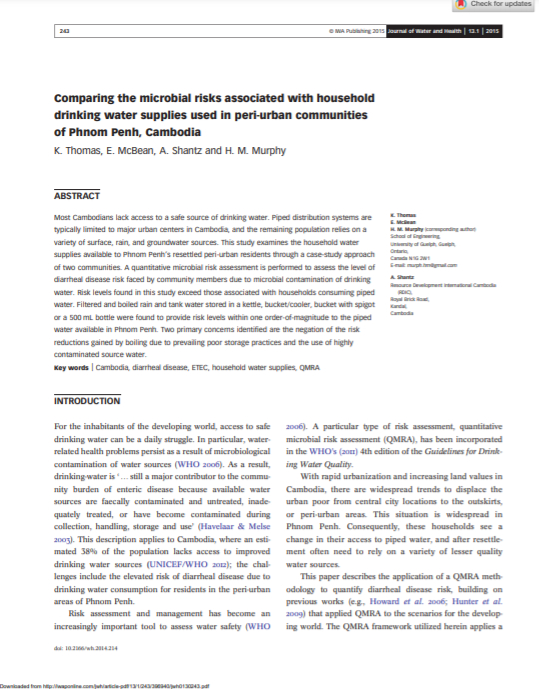
Most Cambodians lack access to a safe source of drinking water. Piped distribution systems are typically limited to major urban centers in Cambodia, and the remaining population relies on a variety of surface, rain, and groundwater sources. This study examines the household water supplies available to Phnom Penh's resettled peri-urban residents through a case-study approach of two communities. A quantitative microbial risk assessment is performed to assess the level of diarrheal disease risk faced by community members due to microbial contamination of drinking water.